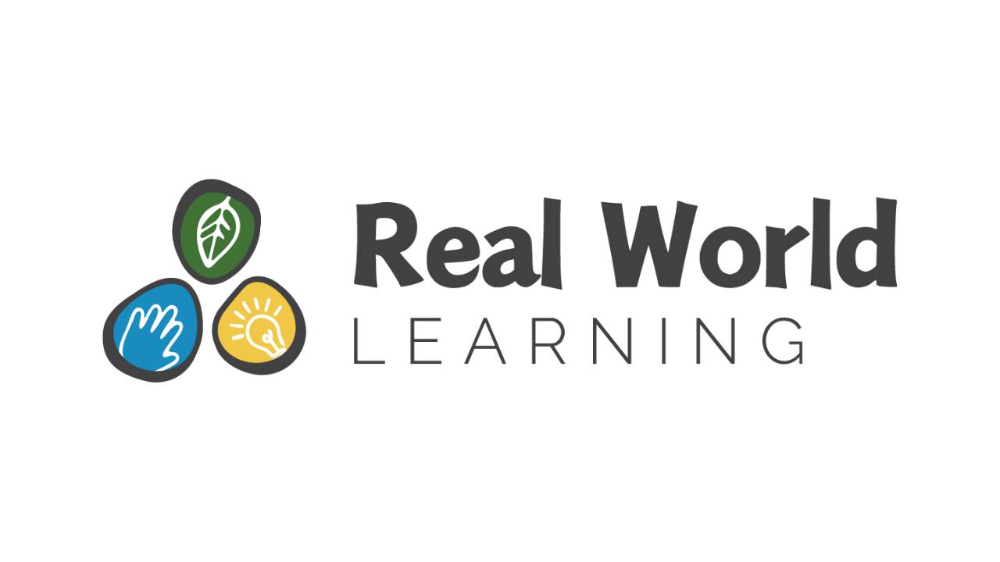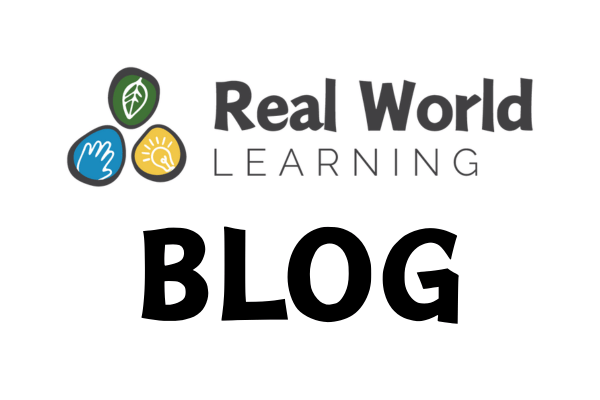Why Place-Connected Learning Is the Missing Link in Early Childhood Sustainability Education

Why Place-Connected Learning Is the Missing Link in Early Childhood Sustainability Education
“Is the ocean under the sandpit?”
The question came during a World Ocean Day activity at a regional early childhood service. The children had been making jellyfish from recycled materials and singing songs about coral reefs. But when that question surfaced—from a child who had never seen the sea—it gave the educator pause.
They realised something essential:
In trying to teach sustainability, they had accidentally taught that nature lives somewhere else.
Far away. Out there. In books and posters and problems too big for little hands to touch.
🌿 Reconnecting Sustainability to Place
In early childhood education and care, sustainability is not just a principle to tick off. It’s a living, breathing part of our curriculum. But for many young children, sustainability can feel abstract—like something that happens somewhere else, or something meant for grown-ups.
That’s where place-connected lea...
From Burden to Breakthrough: How Sustainability Transforms Early Childhood Services

In the world of early childhood education, we often hear the word "sustainability" with mixed emotions. For many directors and educational leaders, it conjures images of complicated systems, additional work, and yet another requirement to meet.
But what if sustainability wasn't another task on your endless to-do list?
What if, instead, it was the solution to many challenges you're already facing?
At Real World Learning, we've seen firsthand how sustainability transforms from perceived burden to powerful breakthrough when approached strategically. Innovative ECEC services are discovering that embedding sustainability doesn't just tick a box—it unlocks potential across every aspect of their program and practice.
The Hidden Benefits of Sustainability in ECEC
1. Unite Your Team Around a Common Purpose
When sustainability becomes part of your service's DNA, something remarkable happens- teams find common ground. A clear pattern emerges across services that embed sustainability meaning...
Starting Your ECEC Sustainability Journey: A Leader's Guide to Taking the First Steps

As an early childhood education leader, you know sustainability matters - it's in the Framework, the NQF, and families are coming to expect it. But putting out a recycling bin and hoping for the best isn't enough anymore. You want to do more, but where do you start?
Having worked with numerous early childhood services, I've seen firsthand how sustainability can feel overwhelming. But I've also witnessed the transformative impact when centres get it right. In a world where sustainability challenges grow increasingly complex, your early childhood service has unparalleled potential to be a true change-maker.
Why Your Role Matters More Than You Think
Think about it - there are very few other places where you can have such a profound impact on how people understand the world and their place in it. When you help children develop sustainable mindsets and behaviours early, you're not just meeting framework requirements - you're shaping the future. Imagine your centre as a place where sustai...
5 Signs Your ECEC Service is Ready to Embed Sustainability

How do you know if your service is ready to move forward with embedding sustainability?
Perhaps you’ve been trying to get traction for years, but any project you’ve implemented has been met with resistance, or fizzled out after a short period of excitement and enthusiasm.
Maybe your team lacks confidence and isn’t sure where to start or what to do next.
Or, you’ve done the basics but know there’s more you could do, especially now the way sustainability is defined in the revised Early Years Learning Framework 2.0 has expanded - what does social and economic sustainability look like in an early childhood setting?
Here’s five things that ECEC Services effectively embedding sustainability have in common. If you see signs of these attributes in your service, chances are, you too will be able to effectively embed sustainability.
These attributes will help you embed sustainability in your service, and reap the benefits it brings for your team, children, community and organisation:
-
...
Why Sustainability Matters in Early Childhood

Embedding sustainability in early childhood education and care (ECEC) is more than a trend, or something that's nice to do; it's a necessary shift towards nurturing future generations who are informed, empowered, and equipped to create a sustainable future - where they can thrive in uncertainty. In our new guide, Why Sustainability Matters in Early Childhood, we explore the vital role that early childhood education plays in developing lifelong sustainable habits and values.
The Importance of Early Years for Sustainability
The early years are crucial for setting the foundation of lifelong values and behaviours. Children are naturally curious and eager to explore the world and understand their place in it, making it the ideal time to introduce sustainability concepts. By fostering these values early, we reduce the need for behaviour changes later in life, which can be a challenging prospect - we all know behaviour change doesn’t come easy! Early childhood educators have a unique opport...
Opportunity Knocks: Identifying opportunities for improving sustainability

Opportunities to improve sustainability knock everyday, do you answer?
Embedding sustainability is a process of continuous improvement. Incremental actions and ongoing progress. You can’t do everything all at once.
Embedding sustainability is about the small steps you take consistently, every day. Improving and evolving your practice as your knowledge, understanding and confidence develop. Engaging others and expanding your circle of influence.
So, how do you identify opportunities to improve sustainability outcomes in your program and practice?
I like to think of embedding sustainability as an emergent curriculum.
Small steps are the key. How can you take your current practice to the next level?
Over the next few days take some time and look around. Look at what’s happening around you through a sustainability lens.
🔍Reflection: What do you see? What do you hear? What is done consistently? What is done with enthusiasm? What is done begrudgingly?
Take these observatio...
Your Sustainability Journey - Start Where You Are

The journey towards sustainability is different for everyone. As sustainability champions and leaders we need to meet others where they are. Our team, and other stakeholders, may not understand sustainability the same way we do.
There are lots of factors that can influence our understanding of sustainability - experience, knowledge, context and culture are some. Getting everyone on the same page so that you can all move forward together is important.
But, how do you know where your people are at? How do you know what sustainability means to them? How do you know the best way to engage them?
Important questions to consider before jumping into your first or next sustainability initiative or project don’t you think...?
My advice - ask them. Have a conversation, set up an “answer box” in the staff room so people can respond to the question “What does sustainability mean to you?”. It’s good to get their responses individually, it doesn’t even matter if they’re anonymous - you can...
Sustainability: The BIGGER Picture

What does sustainability mean to you?
When I ask people that question they often describe the environmental aspects of sustainability - very important and foundational aspects - recycling, connection to nature, gardening, composting, waste minimisation, energy efficiency, saving water. BUT, sustainability is about much more than that.
The EYLF 2.0 has expanded the way it defines sustainability, BUT what does this mean and how can it help you embed sustainability in your setting?
Sustainability is a concept that can mean different things to everyone. Mostly though, people think about sustainability from an environmental point of view. When they think sustainability they think Reduce Reuse Recycle, veggie gardens, worm farms, compost bins, connecting with nature, water tanks and solar panels.
Did you notice that the way sustainability is defined in the revised EYLF 2.0 is a bit different? The revised framework talks about sustainability in a much broader way. This is how it now...
Protecting Biodiversity & Connecting with Nearby Nature

World Environment Day 2024 - Our Land. Our Future #GenerationRestoration
World Environment Day 2024 is bringing focus to the important role we need to play in terms of restoring ecosystems and protecting biodiversity the world over.
Properly functioning ecosystems are what sustain life on Earth - people included. Clean air and water, and healthy soil - the foundations of earth’s natural systems - support all life on earth.
What can you do to help protect the air, water and land?
Think Global. Act Local.
While problems such as climate change, habitat loss and pollution are happening on a global scale, there are many things you can do in your local community, or even within your service that will make a difference.
Acting locally provides the opportunity to explore big issues on a small scale and in a context that makes sense to both children and adults alike.
Here’s some things you can do that contribute to restoring ecosystems and protect biodiversity:
- Plant local indig...
The Journey So Far... Planning and reflection for sustainability

It’s that time of year, it seems to roll around quicker each time…⌛
I tend to spend a bit of time as the year comes to an end thinking about where I’ve come from and where I’m at. What did I learn? What would I do again or do differently next time? What progress has been made?
In the business of sustainability, it’s easy to feel like you haven’t got very far - it’s such a big job…
I encourage you to spend some time thinking about what you’ve achieved - all the little things - got a few catalyst projects happening; started some important conversations with your team, engaged the children learning more about a particular sustainability idea, theme or concept, used more sustainability language; saved some waste going to landfill, made a connection in your community; tweaked a procedure to make it more sustainable; included sustainability in your team meeting discussions - all the little things add up!
You’re probably familiar with the planning cycle, have you considered how you c...



